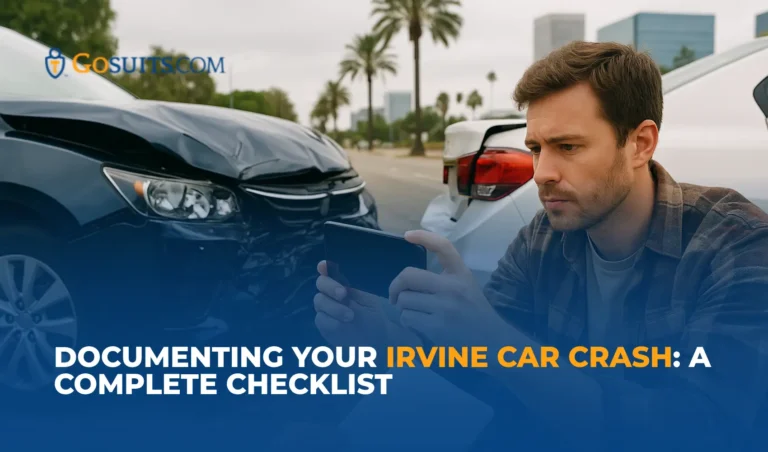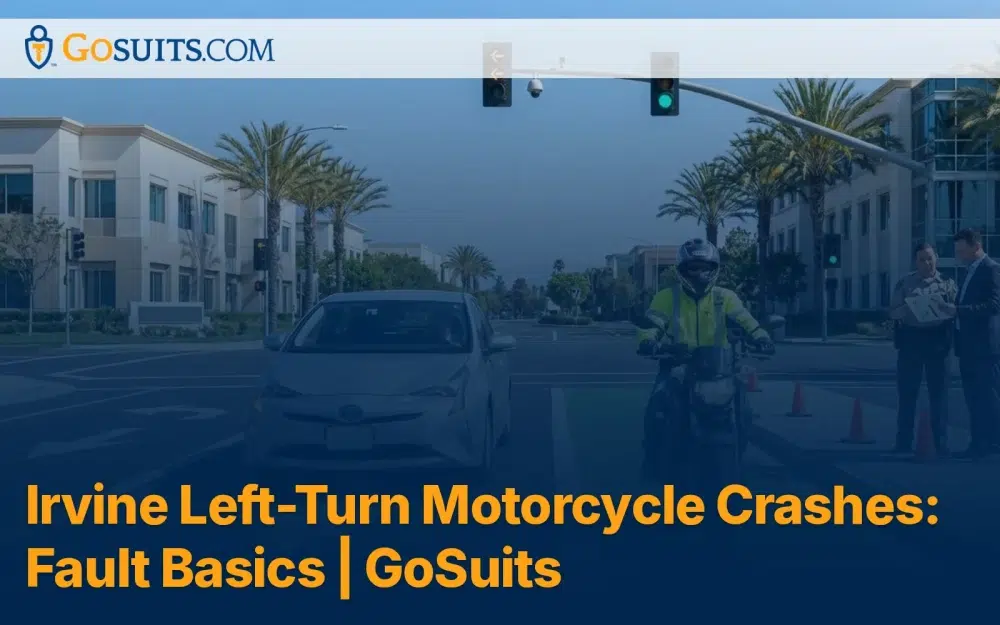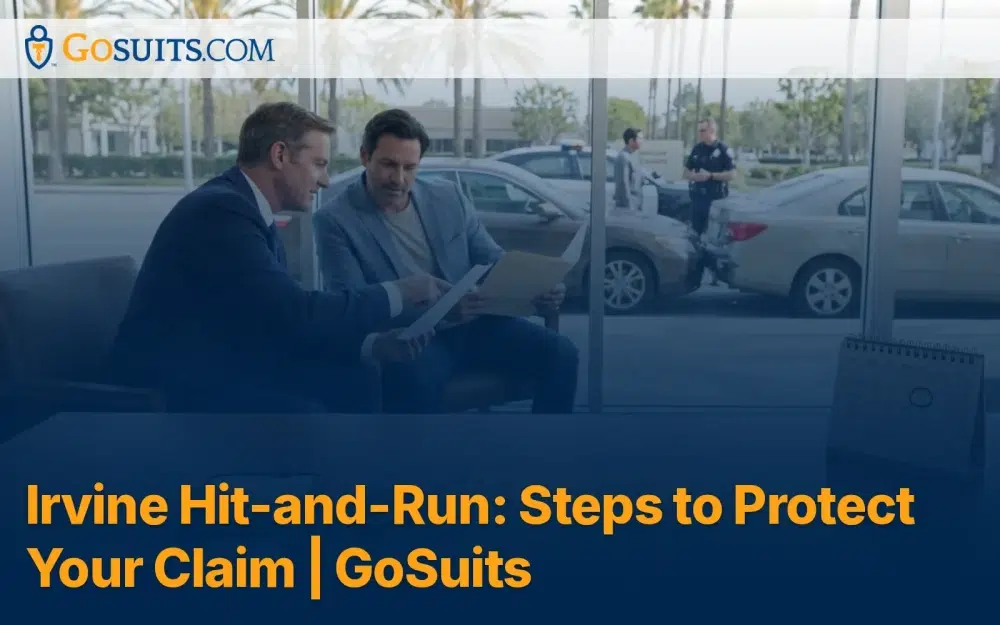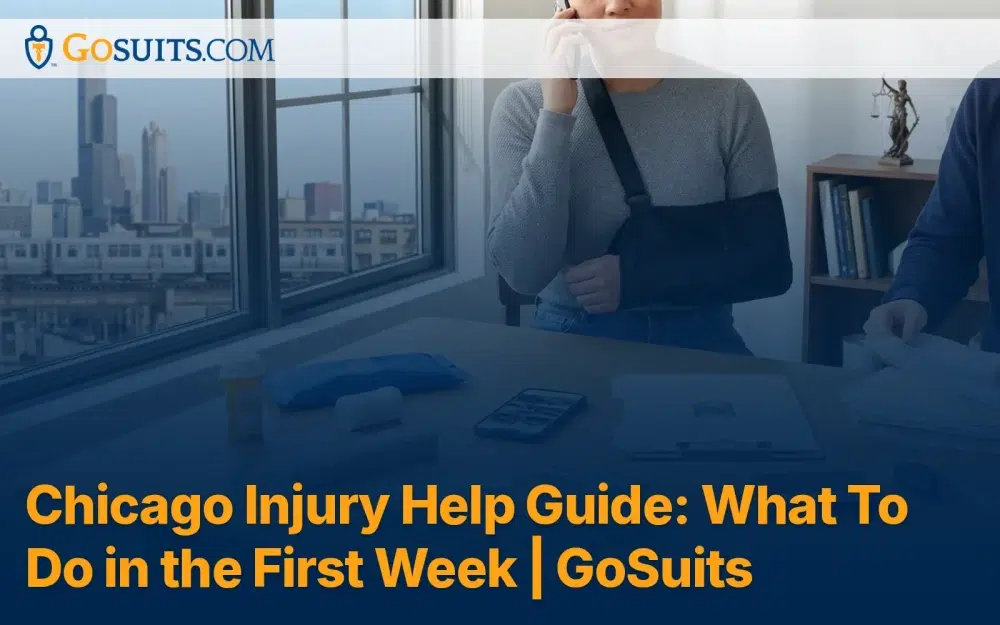A car crash can turn a normal day upside down, bringing not only physical pain but emotional stress and logistical confusion. In those moments, knowing what to document may not be the first thing on your mind, but it can be one of the most important. Accurate documentation is key to protecting your health, your rights, and your future. This guide offers a detailed look at what to record after a crash and explains how legal support can make the process more manageable and less overwhelming.
Why Thorough Documentation Matters After a Collision
Documentation helps establish what happened, how it happened, and what impact it had on your life. When navigating a personal injury claim, facts matter, and well-organized evidence can make the difference between a clear civil case and a contested one. Medical records, photos, witness accounts, and receipts all help build a foundation for your claim.
This is not something you have to do alone. Legal professionals can help you identify what documentation is most critical and organize it in a way that supports your case. When working with an attorney, you benefit from guidance about what to collect, how to preserve it, and how it fits into a larger legal strategy.
Immediate Actions at the Scene
In the first few minutes after a crash, everything can feel chaotic. Your safety, and the safety of anyone else involved, must come first. If you are able to move, check for injuries, call 911, and follow instructions from emergency responders. If you are unable to do so, those first steps will be taken care of by others at the scene. Once the immediate danger has passed and medical personnel are en route or already assisting, your attention may shift to documenting what just occurred.
This documentation begins with exchanging names, contact information, driver’s license numbers, and license plate details with others involved. If there are witnesses, try to collect their names and phone numbers as well. Taking photos or video of the scene, including the position of vehicles, any visible damage, skid marks, traffic signs, and nearby conditions like weather or lighting, can be especially valuable.
One of the most important pieces of documentation is the official police report. Even in what may seem like a minor collision, requesting an officer to come to the scene and file a report creates an independent record. That report typically includes information about the drivers, vehicles, conditions, possible causes, and any citations issued. It may also include the officer’s diagram of the scene and narrative observations. These details often serve as crucial support in civil cases where fault, injury, or damages are being evaluated.
Legal support during this phase can make a significant difference. An attorney can help you determine what information needs to be gathered and whether anything may be missing. In many cases, an attorney can assist in identifying witnesses, clarifying unclear statements, or following up on evidence that was not accessible at the scene. If you were unable to collect certain details due to injury or shock, legal professionals can often help reconstruct what occurred using public records or available documentation.
How to Obtain a Police Report in Irvine
If the Irvine Police Department responded to the crash, you have the right to request a copy of the report once it has been processed. These reports are typically available within a few days, depending on the complexity of the incident. Here is how the process works:
- Wait for Processing
Police reports are not immediately available. After officers file their initial report, it goes through internal review and processing. For most minor crashes, the report is typically ready within 5 to 10 business days. However, more serious incidents may take longer. - Know Where to Request It
In Irvine, police reports are managed by the Records Bureau of the Irvine Police Department. You can request a report in person, by mail, or online.
In-Person Requests
Visit the Irvine Police Department’s front desk located at:
Irvine Police Department Headquarters
1 Civic Center Plaza
Irvine, CA 92606
Monday through Friday, 7:30 a.m. to 5:30 p.m.
Bring a valid government-issued photo ID and as much detail as possible about the crash (date, location, involved parties, and report number if known).
Mail Requests
You may also send a written request to the Records Bureau at the same address. Include:
- A written statement identifying the crash (date, time, location)
- Names of those involved
- Your relationship to the incident
- A copy of your photo ID
- A check or money order for the applicable fee
Online Requests
The City of Irvine uses a third-party portal, typically LexisNexis Police Reports, to process some online crash reports. To use this system, visit:
https://policereports.lexisnexis.com
Search by the date of the crash, the last name of an involved party, and the report number (if you have it). Please note that not all reports are available online, particularly those involving serious injuries or ongoing investigations.
- Fees and Timelines
Most reports cost a small fee, generally under $20. Payments are typically accepted via credit card for online orders or by check for mailed requests. In-person payments can be made by cash or card. If your request is complete and the report is ready, you will usually receive it within a few days. - Who Can Access the Report
In most cases, only ithe nvolved parties, their legal representatives, or authorized insurers may obtain a copy of the police report. This protects privacy and helps ensure accurate handling of sensitive information.
If obtaining a report proves difficult, an attorney can help manage the process. Legal representatives often handle records requests on behalf of clients, follow up with the appropriate departments, and verify that the report accurately reflects what occurred. If there are errors or missing information, your attorney can help address them properly.

Capturing Evidence on the Spot
Taking clear, thorough photos and videos of the scene can create a strong visual record of what happened. This includes not just vehicle damage but also road conditions, signage, skid marks, lighting, and weather. Photos should capture both close-up details and wider angles to show the full context.
An attorney can help you understand what types of images or footage might be most useful down the line. If you were unable to take pictures at the time due to injury or medical treatment, legal guidance can assist in locating alternative sources of visual evidence, such as nearby surveillance footage or dashcam videos.
Documenting Injuries and Medical Care
Some injuries are immediately obvious. Others appear hours or days later. Regardless of severity, documenting injuries is one of the most important steps you can take after a crash.
To create a reliable record of your injuries and recovery, the following should be carefully documented:
- All medical evaluations, including emergency care, hospital visits, and specialist consultations
- Diagnoses received from physicians or medical providers
- Treatment plans and follow-up appointments
- Physical therapy notes and progress reports
- Prescription medications and pharmacy records
- Personal notes or journals tracking pain, limited mobility, or emotional stress
An attorney plays a central role in reviewing this documentation. Legal professionals can coordinate with your healthcare providers to obtain the full range of medical records, help explain how those records support your case, and make sure nothing important gets overlooked. If certain injuries develop over time, your legal team can help update your documentation accordingly and make sure your claim reflects the evolving nature of your condition.
Preserving Evidence of Property Damage
The damage to your vehicle tells part of the story. Before any repairs take place, take photos of your car from every angle, including close-ups of the impact and any damage to the interior. Save damaged personal items, such as phones or glasses, that were affected in the crash.
Attorneys can help evaluate the full extent of property damage and how it factors into your case. If questions arise about how the crash occurred or how forceful the impact was, detailed documentation becomes critical. Legal teams often work with auto repair experts or accident reconstruction professionals who can use your evidence to explain how the damage relates to your injuries and losses.
Tracking Communications Related to the Crash
Communication does not stop once the vehicles are towed. In the days and weeks following the crash, you may receive calls, texts, or emails from other drivers, medical providers, or witnesses. Some of these may contain helpful admissions, explanations, or updates. Save everything. Even casual messages can help confirm timelines or facts that support your version of events.
If you are unsure what to keep, or if you feel overwhelmed by the volume of messages, a legal team can help sort through the material and identify what matters most. Attorneys know which types of communication are useful, and which may need to be handled with greater care. This level of guidance can prevent misunderstandings or the accidental loss of valuable information.
Crash Documentation Within the Irvine Area
Crashes in Irvine can present unique documentation challenges. From high-speed freeway collisions on the I-405 to slower-moving accidents near shopping centers or schools, each location adds a different context. Local traffic flow, signage, and environmental conditions play an important role in understanding what occurred.
Attorneys familiar with the area may be able to access reports, traffic records, or public data that help support your claim. If the incident happened at a known traffic hotspot or construction zone, a legal team can help investigate whether road design or maintenance contributed to the crash. This can be especially helpful in cases involving multiple vehicles or unclear fault.
Medical care provided through local facilities such as UCI Medical Center or Hoag Irvine should also be documented thoroughly. An attorney can help collect those records, make sure they are properly linked to the date of the crash, and review them for details that support your case.
Ongoing Documentation After Leaving the Scene
The effects of a crash often continue long after the day it happened. You may be unable to return to work right away. You may need help around the house or ongoing medical care. These costs and challenges are real, and documenting them is just as important as documenting the initial injury.
If you miss work, keep records of your hours lost, emails with your employer, and pay stubs showing the change in income. If you need to take taxis or rideshares to medical appointments, those expenses should be saved as well. Mental health struggles, such as anxiety or disrupted slee,p should also be written down, even in a simple journal or phone note.
Legal professionals can help you keep track of all of this. Attorneys often provide clients with checklists or secure client portals to upload records and receipts. They can also follow up with third parties to obtain missing information or clarify the scope of your losses. Having someone organize the details while you focus on recovery can lift a significant burden from your shoulders.

Avoiding Common Documentation Mistakes
Documentation is only helpful if it is consistent, complete, and accurate. Some of the most common issues include delaying medical treatment, failing to photograph property damage, misplacing receipts, or not collecting witness information. Others include casual statements made in the moment that can later be misunderstood.
Working with an attorney helps you avoid these missteps. Legal teams can review your documentation early on, identify any gaps, and help correct them while the evidence is still fresh. They also help you avoid actions that could unintentionally weaken your case. This guidance, offered from the beginning, supports your ability to pursue your case fully and effectively.
Legal Guidance You Can Trust
If you have been involved in a car crash in Irvine, documentation is the foundation of your entire case. But knowing what to gather, how to preserve it, and when to act is not always clear in the aftermath of a traumatic event. That is where we come in.
At Gosuits, we understand that the details matter. We have worked with crash victims throughout Irvine, from freeway pileups to neighborhood intersections, and we know how to turn medical records, witness accounts, and local traffic data into a strong legal narrative. We do not hand your case off to support staff or leave you guessing. You will work directly with an attorney who takes the time to get the full picture, fills in the gaps, and makes sure nothing important slips through the cracks.
If you are unsure whether your documentation is enough or you are feeling overwhelmed about what to do next, we are here to guide you forward, step by step, and with your recovery in mind. Reach out today for a free consultation. We will review what you have, help gather what is missing, and put the pieces together to protect what matters most.






